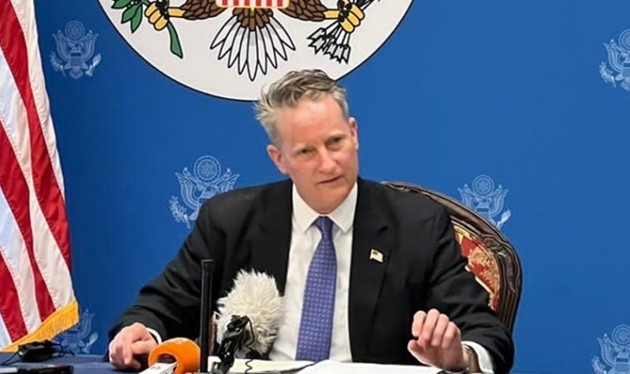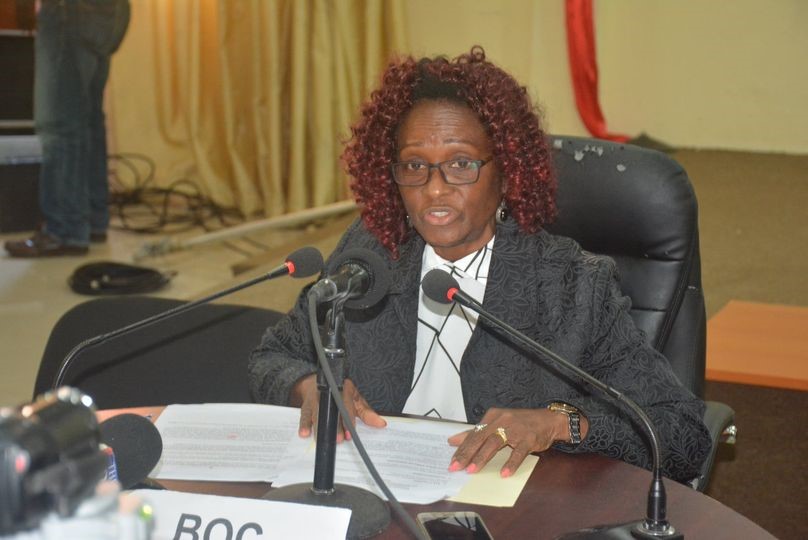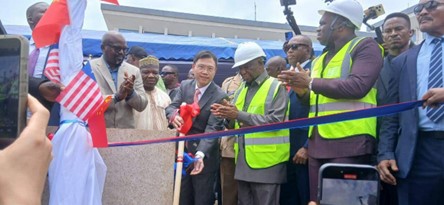The United States Ambassador to Liberia, Michael McCarthy, has exposed a damning syndicate among the National Legislature, the Ministry of Health and the Ministry of Internal Affairs to deprive health facilities in the country of the funds allocated for them in the national budget. He pointed out that at first he thought it was the work of one political party, but the notion was quickly dispelled by Liberians he talked to.
Ambassador McCarthy lamented that hospitals on which lives depend, where outbreaks are prevented and suffering is alleviated, did not receive any portion of the US$100,000 or more appropriated by the National Legislature for them to operate. “As reported in the press last week with Tellowoyan Memorial Hospital in Lofa County, these facilities currently survive on the backs of incredibly dedicated health professionals, making do with whatever they can scrape together. Lest you think this is the work of one political party, that notion was quickly dispelled by Liberians I talked to. The blocking of resources is so complete that it must be institutional: and the lack of any alarm being raised indicates a syndicate involving players at the Legislature, the Ministry of Health, and the Ministry of Internal Affairs. In one town, administrators look with anticipation mixed with fear at the brand-new, modern hospital that sits vacant, knowing that they can barely keep the existing makeshift facility going, and running the new one will require ten times the resources,” he explained.
He said he also visited most of the County Service Centers, and in 2022 none had received any of their budget allocation (usually around US$13,333). “One Center has not printed marriage certificates for four years because the printer broke, and their last allocation was received five years ago. Virtually all of them, beautifully electrified over the past two years with UNDP-supplied solar power systems (costing around $35,000 – $40,000 each), and amply staffed by (mostly) salaried employees in tidy buildings, are reduced to the job of middlemen,” he continued.
“Limited to forwarding paperwork to Monrovia periodically for time-consuming processing, their plight makes a mockery of decentralization efforts. The one functioning office in every center, the Liberia Revenue Authority (LRA), has representatives who collect duties and regularly forward funds to Monrovia—apparently a one-way street.
“It was striking that the further I went from Monrovia the more elaborate and explicit were the reasons given for the lack of funding from the central government. ‘Oh, it is challenging for the government these days.’ ‘Oh, Putin’s war has made everything more difficult.’ ‘Prices have dried up the budgets.’ ‘You donor partners must fill the gaps.’
“I wonder if these people are aware that, much to their credit, the LRA has surpassed projections and increased revenues for the past four years, climbing from US$435,682 million in 2019 to US$605,005 million in 2022? I suspect the country folk don’t know that the Liberian economy grew by 3.7% in 2022. And I am quite sure they have not been told that the Legislature has spent more every year for the past three years buttering their own bread, allocating over US$65 million in 2022 for salaries and operations.
“That’s correct–while hospitals went without, and service centers withered on the vine, the 30 senators and the 73 representatives spent sixty-five million U.S. dollars feathering their own nests,” he disclosed.
“U.S. taxpayers spend around US$60 million a year on healthcare in Liberia, and another US$23 million on education. The same Legislature that spent US$65 million on itself in 2022 appropriated around US$7.1 million for grants and subsidies to county health facilities and US$2.76 million for operations at basic and secondary education (although, as we saw, that doesn’t mean the funds reached their intended destinations). But if the Legislature could just appropriate an additional US$10 million a year to primary education (for a country that is tied in last place for average days of school attendance), and an additional US$10 million a year for county hospitals, even the greatest cynics concede that it would make a big difference.
“Just US$500,000 each per year of actual maintenance (not make-believe budgeted funds) on four unpaved roads (Zorzor – Voinjama; Zwedru – Fishtown; Greenville – Barclayville City; and Greenville – Buchanan) would dramatically improve the lives of more than a million of Liberia’s poorest citizens, lowering food costs, revolutionizing farm-to-market access, and eliminating seasonal shortages of life-saving medicines and equipment. The Legislature would still have US$43 million a year to somehow get by,” he argued.







